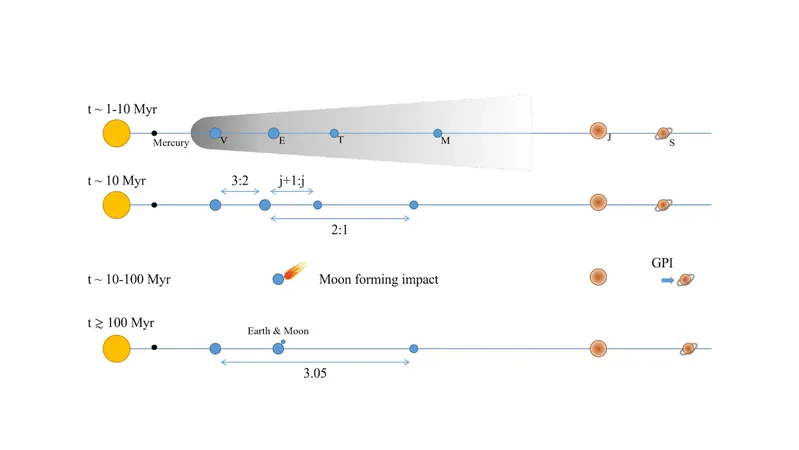
Improving Vaccine Accessibility: The Key to Enhanced Uptake and Public Health
2025-01-03
Author: Rajesh
Access to vaccines is more crucial than ever, especially in the wake of the COVID-19 pandemic, which has reshaped the landscape of immunization. Researchers have established that simplifying the vaccination process can dramatically increase the number of eligible patients seeking immunizations. As evidence of this, the pandemic saw individuals proactively searching for vaccination opportunities, highlighting a significant shift in public behavior toward immunization.
A recent study published in the Annals of Medicine emphasized that vaccines for diseases like herpes zoster, pneumococcus, and influenza, which are highly recommended for older adults, often see disappointingly low uptake rates. The study's authors pointed out that various barriers—particularly for underserved populations—hinder access to adult vaccinations. These barriers range from complex procedures and limited resources within healthcare systems to a lack of well-structured infrastructures designed to facilitate immunization practices.
The impact of the COVID-19 pandemic on routine vaccinations has been profound. Research conducted by the Human Vaccines & Immunotherapeutics team indicates that many individuals, especially those over 50, may face increasing incidences of diseases like influenza, pertussis, and pneumococcal infections, with anticipated surges of 36%, 32%, and 64%, respectively, in the next three decades.
This ongoing public health dilemma surrounding vaccination, which has reverberated both before and after the pandemic, has made it evident that the robust vaccination efforts during COVID-19 could set a precedent for addressing these disparities in vaccine distribution and accessibility in the future.
The researchers proposed critical improvements for adult vaccination access through new providers and settings, which would necessitate the development of a comprehensive plan focused on preventive healthcare. This plan would need to include setting target coverage rates, securing financial resources, and developing accessible immunization information systems for all providers to ensure accurate record-keeping and efficient reminder systems.
Evidence from the pandemic shows that there was a remarkable expansion in the scope of practitioners administering vaccines. Pharmacists were given broader authority to provide COVID-19 testing and vaccinations, which significantly increased immunization rates. Additionally, innovative approaches such as drive-through vaccination centers allowed a larger number of people to receive shots conveniently, demonstrating that effective solutions exist to enhance access.
As the world continues to focus on increasing vaccination rates beyond COVID-19, experts encourage public health officials to draw lessons from recent experiences. While certain government interventions were temporary, there’s an opportunity to create sustainable systems aimed at improving vaccine access for various populations.
In conclusion, the response to the COVID-19 pandemic proved that rapid expansion of vaccination access can be successfully achieved by utilizing a broader network of providers and settings. The ongoing efforts to refine vaccination strategies could ensure that the public remains better protected from a variety of diseases in the future.
Don't miss out on critical updates! Stay informed by subscribing to our newsletter for the latest news on vaccines, health initiatives, and medical breakthroughs.




 Brasil (PT)
Brasil (PT)
 Canada (EN)
Canada (EN)
 Chile (ES)
Chile (ES)
 Česko (CS)
Česko (CS)
 대한민국 (KO)
대한민국 (KO)
 España (ES)
España (ES)
 France (FR)
France (FR)
 Hong Kong (EN)
Hong Kong (EN)
 Italia (IT)
Italia (IT)
 日本 (JA)
日本 (JA)
 Magyarország (HU)
Magyarország (HU)
 Norge (NO)
Norge (NO)
 Polska (PL)
Polska (PL)
 Schweiz (DE)
Schweiz (DE)
 Singapore (EN)
Singapore (EN)
 Sverige (SV)
Sverige (SV)
 Suomi (FI)
Suomi (FI)
 Türkiye (TR)
Türkiye (TR)
 الإمارات العربية المتحدة (AR)
الإمارات العربية المتحدة (AR)